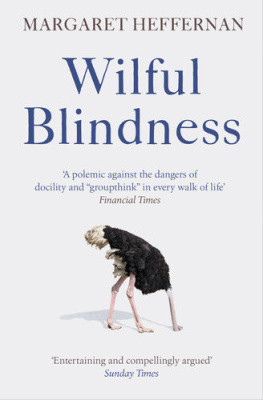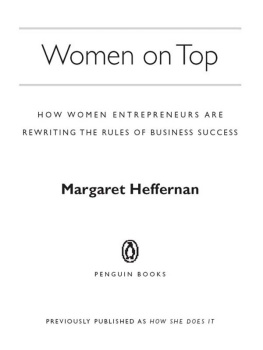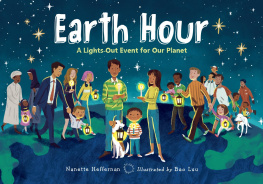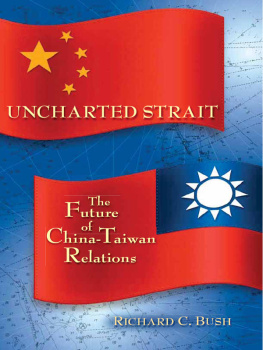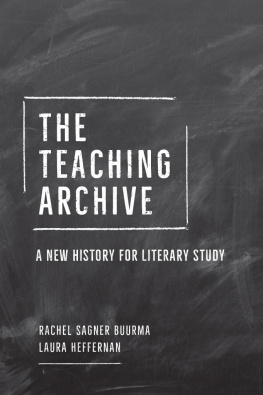Margaret Heffernan - Uncharted: How to Map the Future
Here you can read online Margaret Heffernan - Uncharted: How to Map the Future full text of the book (entire story) in english for free. Download pdf and epub, get meaning, cover and reviews about this ebook. year: 2020, publisher: Simon & Schuster UK, genre: History. Description of the work, (preface) as well as reviews are available. Best literature library LitArk.com created for fans of good reading and offers a wide selection of genres:
Romance novel
Science fiction
Adventure
Detective
Science
History
Home and family
Prose
Art
Politics
Computer
Non-fiction
Religion
Business
Children
Humor
Choose a favorite category and find really read worthwhile books. Enjoy immersion in the world of imagination, feel the emotions of the characters or learn something new for yourself, make an fascinating discovery.
- Book:Uncharted: How to Map the Future
- Author:
- Publisher:Simon & Schuster UK
- Genre:
- Year:2020
- Rating:4 / 5
- Favourites:Add to favourites
- Your mark:
- 80
- 1
- 2
- 3
- 4
- 5
Uncharted: How to Map the Future: summary, description and annotation
We offer to read an annotation, description, summary or preface (depends on what the author of the book "Uncharted: How to Map the Future" wrote himself). If you haven't found the necessary information about the book — write in the comments, we will try to find it.
Uncharted: How to Map the Future — read online for free the complete book (whole text) full work
Below is the text of the book, divided by pages. System saving the place of the last page read, allows you to conveniently read the book "Uncharted: How to Map the Future" online for free, without having to search again every time where you left off. Put a bookmark, and you can go to the page where you finished reading at any time.
Font size:
Interval:
Bookmark:

For
Jonathan
Raj
Robert
and
Roger
INTRODUCTION
We think about the future all day, every day. What time do I need to leave the house? Whats for breakfast? Can we picnic at the weekend? Should I change jobs? Move house? Online and offline, the news is mostly speculation: what will happen in Congress, in Parliament, in traffic, in the markets. However much we might aim to live in the present, we cant cross the road without thinking ahead: will that car reach me before Im safely across? Our brains have evolved to anticipate whether well like this food, this person, that book. Entire industries property, travel, banks, insurance, pensions, technology analyse, construct and sell permutations of the future. So we cannot not think about it: neither our brains nor our lives will allow it.
Prospection bestows tremendous evolutionary advantage, alerting me to danger or reassuring me that the noise I hear isnt a burglar but a cat. For the most part, it works so well that we scarcely notice when we get home on time, pack the right clothes, select satisfying homes and holidays. Apps train us to assume accuracy in plotting routes, choosing hotels, restaurants and lovers with levels of confidence and precision our ancestors never imagined. We have come to expect the future to be minutely and perfectly predictable.
And then it rains after all, the trains late, traffic is held up by a crash, the neighbourhood is noisy, the job hateful and the election doesnt go our way. Trump. Brexit. The end of history. The fall of idols. Booms and busts and out of the blue, #MeToo. The predictability of life, on which weve come to depend, seems to fall away and were left angry, intolerant, fearful.
Our expectations are wrong. The future isnt perfectly knowable and never has been. Our brains may be the single most complex object in the known universe, but they still make mistakes. Todays technology may be the most advanced the world has ever seen, but it too is imperfect: incomplete, biased and full of error. Google isnt always right. Maps steer us to the wrong place and unpredictable accidents make us late. Artificial intelligence trusts correlations that turn out to be irrelevant, selective or ill-informed. DNA knows nothing about broken legs or toxic pollution.
Ineradicable uncertainty remains inherent to human life; Hannah Arendt called it the defining characteristic of the future. That this leaves us uncomfortable and anxious is why humans have always searched for ways to see whats coming: oracles, shamans, soothsayers, augurs, horoscopes, religions. Longing to reduce uncertainty and doubt has driven much of our progress. The more we noticed, remembered, wrote down and shared, the more knowledgeable we became and the better able we were to pass on our learning for future generations to increase. This has made us better and better estimators, able to plan, to manage, to anticipate. The entire construct of management forecast, plan, execute hinges on our capacity to make well informed estimates. The more we practised it, the more accurate we became.
It makes sense to imagine that that progress is infinitely sustainable, but it isnt. Along the way, fundamental change has occurred. We have moved from a complicated world to a complex one. The two arent the same and complexity isnt just complicated on steroids. Complicated environments are linear, follow rules and are predictable; like an assembly line, they can be planned, managed, repeated and controlled. Theyre maximised by routine and efficiency. But the advent of globalisation, coupled with pervasive communications, has made much of life complex: non-linear and fluid, where very small effects may produce disproportionate impacts. General Stanley McChrystal distinguishes the contrast between the First Gulf War (199091), which he says was complicated an intensely planned application of overwhelming force, executed by the book and the Iraq War (begun in 2003), which was complex: a fluid, volatile environment of shifting opacity where a lone individual with a cell phone could tip the balance. On a more mundane level, the manufacturers of plastic straws thought theirs a predictable business until 2019, when public opinion declared the product unacceptable, while the maker of electronic keyboards discovered that a single negative review on Amazon could reduce sales by 50 per cent.
What this shift means is that, while we can still be generally certain about many things, much remains specifically ambiguous. We know climate change is real, but that doesnt mean we can predict when or where wildfires will break out or when extreme weather events will destroy which harvests. The Bank of England acknowledges that there will be future banking busts, but cannot say when or why. Their executives arent stupid; theyre just candid about navigating daily tsunamis of data and interactions, of which some are meaningful, much is obscure and quite a lot is pointless. The Bank recognises that much of the system Trumps tweets, corruption trials in Korea, the outbreak of a new virus lies beyond its influence. Complex global systems incorporate a multitude of factors, each influencing others but controlled by no one person or nation. We used to ignore these systems but their problems have become ours now, when a bank halfway across the world crashes or a government falls.
Apples iPhone may have been designed in California, but making it depends on raw materials and suppliers from Ireland, the Philippines, China, Taiwan, Japan, Austria, Korea, Singapore, Thailand, Germany, the UK , the Netherlands, Indonesia, Puerto Rico, Brazil, Malaysia, Israel, the Czech Republic, Mexico, Vietnam, Morocco, Malta, Belgium and most of the United States. This complex supply chain is designed to reduce costs, take advantage of labour specialisms, employment conditions, currency fluctuations and tax breaks. But they expose Apple (and similar phone manufacturers) to natural disasters, labour disputes, economic volatility, social turmoil, religious strife, trade wars and political discontent: all factors over which the company has no control, little influence and poor foresight. Were so dazzled by the ornate complexity of such manufacturing systems that we forget, or prefer to deny, that contingencies have multiplied, fragility has proliferated, accurate prediction has become harder.
Other models prove unsatisfactory too. DNA tells only part of our story; the rest is driven by more factors than we see or know. Psychological profiling is flawed by subjective models, attribution errors and inadequate data. History doesnt repeat itself but often misleads us with aesthetically pleasing analogies that underweight critical differences. Proponents of each model oversell their promise and each one falls down, defeated by the ineradicable uncertainty of life.
Technology offers a newer, shinier model, purporting to provide certainty, while in fact merely masking ambiguities. Big data, analytics, machine learning and artificial intelligence may help us to see more, to glean patterns previously impenetrable to the human brain alone. But their capacity to assess mountains of data at speed obscures their flaws. A large dataset might describe a group or neighbourhood of voters well, but still be unable to predict with certainty how an individual will vote next time. Algorithms are, as the mathematician Cathy ONeil once said, opinions encoded in numbers. They impose subjective assumptions on data thats skewed and incomplete. Unique or rare external events may render what was formerly predictable suddenly unforeseeable, making historical data irrelevant or useless. (This is frequently true of epidemics.) And finally there is the problem of life itself: the tendency of organisms, atoms and subatomic particles to behave in non-random but fundamentally unpredictable ways.
Font size:
Interval:
Bookmark:
Similar books «Uncharted: How to Map the Future»
Look at similar books to Uncharted: How to Map the Future. We have selected literature similar in name and meaning in the hope of providing readers with more options to find new, interesting, not yet read works.
Discussion, reviews of the book Uncharted: How to Map the Future and just readers' own opinions. Leave your comments, write what you think about the work, its meaning or the main characters. Specify what exactly you liked and what you didn't like, and why you think so.

